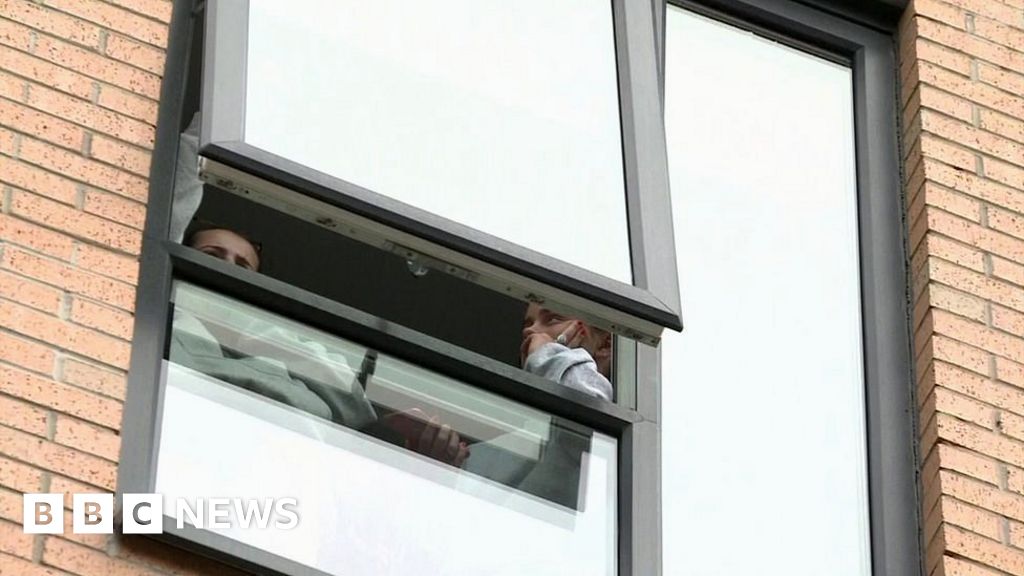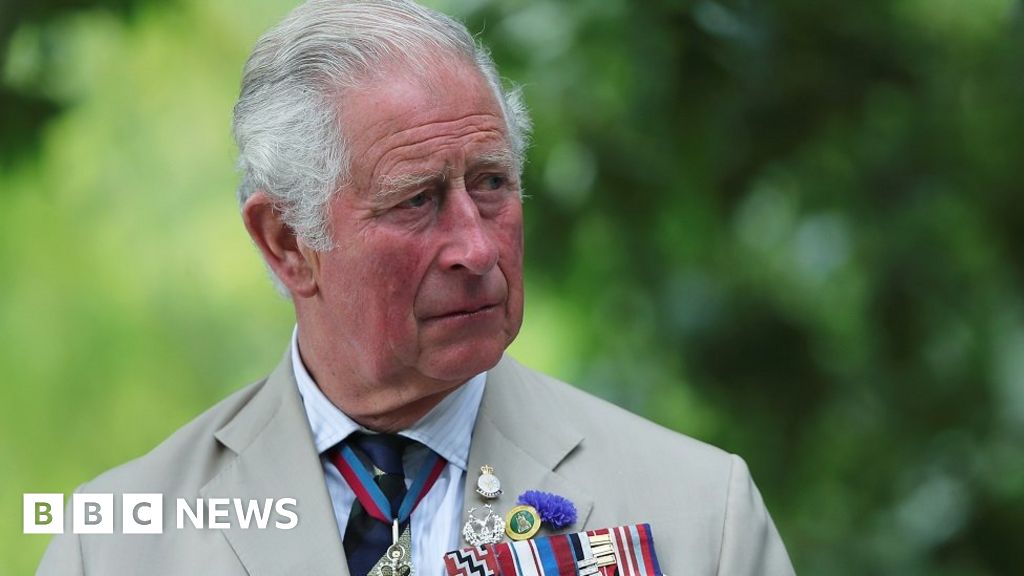 Image copyright
PA Media
Image copyright
PA Media
GCSE results in NI will be solely based on grades provided by teachers, the education minister has said.
There was controversy last week after more than a third of A-level and AS-level grades provided by schools were lowered by the exams board CCEA.
Schools were asked to give predicted grades but then other data was used by CCEA to standardise the results.
Education Minister Peter Weir has now said standardisation will not apply to GCSEs.
Later on Monday, Mr Weir also announced that A-level and AS-level students in Northern Ireland will be awarded the highest grade either predicted by their teacher or awarded officially last week.
Mr Weir said GCSEs taken with exams body CCEA - which provides about 97% of GCSE exams in Northern Ireland - would be covered by the decision.
"Having received advice from CCEA and listened to the concerns of school leaders, teachers, parents and young people, I have decided that all GCSE candidates will now be awarded the grades submitted by their centre," he said.
"Standardisation is normally a key feature of awarding qualifications in Northern Ireland and across the UK.
"However, these are exceptional circumstances and in exceptional times truly difficult decisions are made.
"I am conscious that for GCSEs, unlike at A-level, we do not have system level prior performance data for this group of young people."
Image copyright EPA Image caption Education Minister Peter Weir said the current circumstances are "exceptional"Mr Weir said he wanted to encourage as many young people as possible to remain in education or training after the age of 16.
He said he was acting to "ease anxieties" and "reassure young people and their families".
"I am also mindful that unlike A-Level, many GCSE pupils will not have access to previous public examination outcomes to inform any appeals process," he added.
CCEA said it welcomed the minister's decision.
"We will work immediately to implement this decision, with GCSE results published on Thursday 20 August 2020," it said.
Asked by the BBC about the small number of NI GCSE students who sat tests set by English exam boards who will not benefit from this move, Mr Weir said "a small minority, I think, have been left in a difficult position as regards GCSEs in Northern Ireland".
Analysis: 'U-turn for minister'
By Robbie Meredith, BBC News NI education correspondent
The minister has basically taken the exam board CCEA's role out of the entire GCSE process this year.
Those grades provided by schools alone will be used to give GCSE results.
That is likely to see a massive spike in results overall, which were already pretty high in Northern Ireland.
Last year, over four in every five GCSE entries were graded at A* to C, what would be regarded as pass grades.
This move will come as a substantial relief to many pupils and schools.
I don't think you can paint this in any other way than saying it's a U-turn for the minister.
Read more: Q&A on Northern Ireland's GCSE results U-turn
There was widespread criticism of the system used to determine A-level and AS-level grades prior to Mr Weir's U-turn on Monday afternoon.
On Sunday, a majority of the Stormont parties backed a move to recall the assembly to try to address the dispute over exam results in Northern Ireland.
Image caption Koulla Yiasouma said the system was "clearly flawed"Speaking before the A-level U-turn, Northern Ireland's Children's Commissioner Koulla Yiasouma said she had co-signed a letter sent out to universities across the UK, asking them to honour conditional offers made to students prior to last week's A-level results.
"We've seen far too many young people give too many examples of quite bizarre grades. The system is clearly flawed," she said.
"The students of 2020 are special. No other student has been through this experience.
"We are calling on all universities to honour the conditional offers they made to those young people. This system has clearly not been fair."
How were A-levels decided?
Following the cancellation of exams in March due to the coronavirus pandemic, CCEA was instructed by Mr Weir to ensure the calculated results in 2020 were broadly in line with performance in recent years.
CCEA asked teachers to give a predicted grade for their pupils and then rank them in order within each subject.
It then used other data to standardise the results. For A-levels, the model used pupils' AS-level results and resit data.
According to CCEA, in 37% of cases this year teachers were overly optimistic in their prediction, affecting about 11,000 grades.
In about 5% of tests teachers underestimated the result, meaning that about 1,500 grades rose as a result of standardisation.
CCEA said if teacher judgement had been used on its own, results would have risen "considerably".
Mr Weir initially said the move on GCSEs would not change the approach that was taken on A-levels.
However he later announced the change which will see A-level and AS-level students in Northern Ireland awarded the highest grade either predicted by their teacher or awarded officially last week.

 5 years ago
1193
5 years ago
1193 
